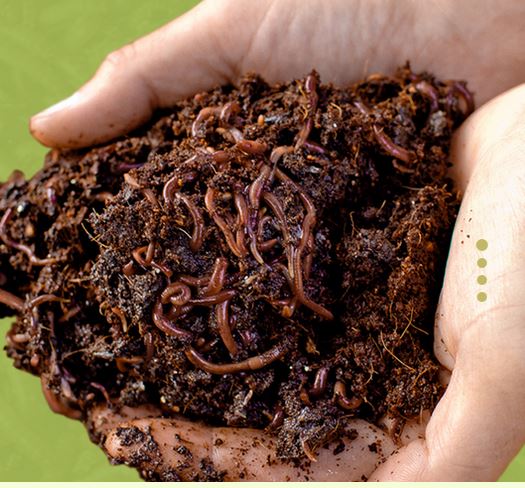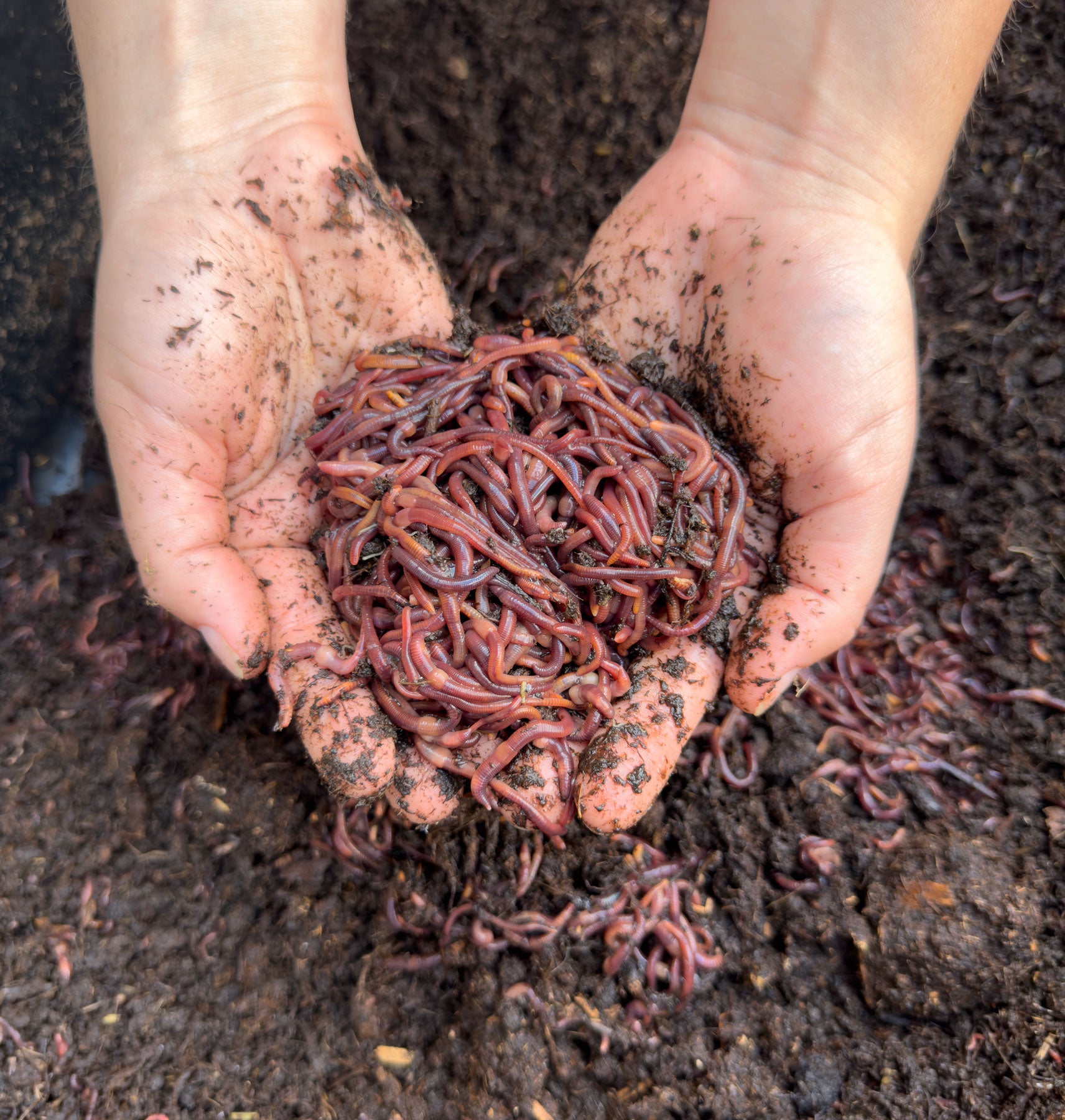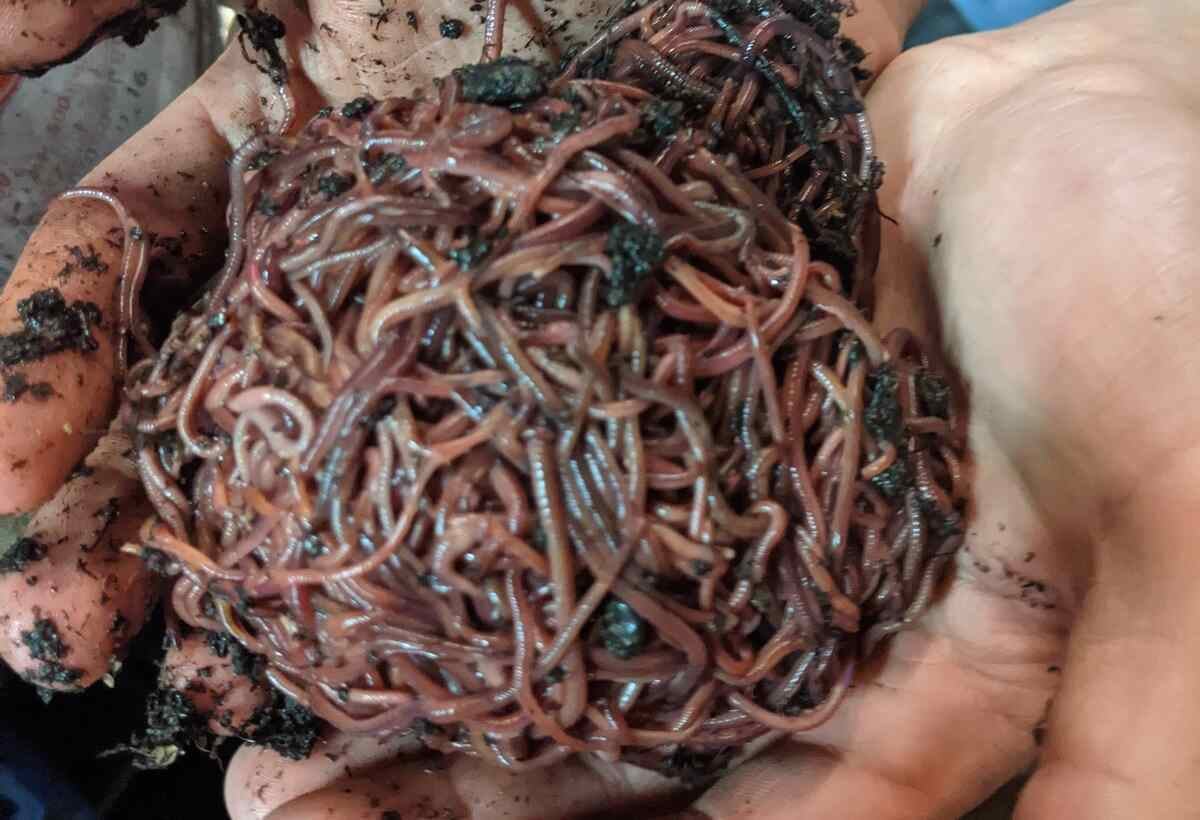Red Wiggler Worms Demystified: Unlocking the Keys of Vermiculture for Greener Living and Nutrient-Rich Dirt
In the world of sustainable techniques for enhancing dirt quality and advertising eco-conscious living, red wiggler worms play a crucial yet usually neglected duty. Red Wiggler Worms. Understanding the ins and outs of caring for these worms, optimizing their setting, and harnessing their castings can lead to a greener lifestyle and much healthier soil for plants to grow.
The Duty of Red Wiggler Worms
Red Wiggler worms play an important duty in composting systems by efficiently breaking down natural issue right into nutrient-rich castings. These starved eaters eat a variety of organic materials, such as cooking area scraps, yard waste, and paper items. As they feed, the worms' digestive processes break down the natural issue right into a penalty, dark, and nutrient-dense product known as worm castings or vermicompost.
The castings created by Red Wiggler worms are extremely advantageous for dirt wellness and plant development. They are abundant in important nutrients like nitrogen, phosphorus, and potassium, which are important for sustaining healthy and balanced plant growth. In addition, worm spreadings contain useful microorganisms and enzymes that aid boost dirt framework, boost water retention, and boost nutrient uptake by plants.
Advantages of Vermicomposting

Moreover, vermicompost, the nutrient-rich final result of vermicomposting, works as a superb organic plant food and soil conditioner. It boosts soil framework, boosts soil oygenation, and increases dirt moisture retention. These properties add to healthier plants with more powerful root systems and much better resistance to pests and illness. Vermicompost likewise enhances the soil with crucial nutrients like potassium, phosphorus, and nitrogen, promoting plant development and general soil fertility.
In addition, vermicomposting assistances lasting gardening techniques by offering a all-natural and chemical-free choice to artificial plant foods. Red Wiggler Worms. This environmentally friendly strategy not just enriches the soil but also assists minimize dependence on harmful chemicals, promoting a greener and more sustainable way of gardening
Setting Up a Worm Bin
When establishing a worm bin for vermicomposting, proper configuration is important to make certain the success of the composting procedure. The initial action in establishing a worm container is choosing an appropriate container. This can be a plastic bin or wood box that gives sufficient room for the worms to move and has correct water drainage openings to avoid waterlogging. Next off, a bed linens product such as shredded paper, cardboard, or coconut coir ought to be added to the bin. This bedding provides a comfy atmosphere for the worms and assists maintain wetness degrees.
After including the bed linens, introduce the red wiggler worms to the container. The worms must then be supplied with food scraps such as fruit and vegetable peels, coffee premises, and eggshells.
On a regular basis keep track of the dampness levels and temperature level in the worm bin to ensure ideal problems for the worms. With appropriate arrangement and maintenance, the worm container will effectively transform organic waste into nutrient-rich compost for your plants and garden.
Gathering Worm Castings
To effectively gather nutrient-rich worm spreadings from your vermicomposting system, an organized harvesting method is important. When it comes time to collect the worm spreadings, there are a couple of key steps to follow to guarantee an effective process.

Troubleshooting Common Issues
Determining and resolving typical challenges that may develop during the vermicomposting process is important for preserving a healthy and efficient worm container. One usual problem that vermicomposters encounter is overfeeding. Adding excess food scraps can lead to a build-up of dampness and level of acidity in the worm bin, potentially damaging the worms. To stop this, feed the worms in moderation, making certain that the food scraps are sufficiently broken down before including my review here much more. Another concern is undesirable smells rising from the worm container. Foul smells show anaerobic problems, usually triggered by overwatering or poor ventilation. To remedy this, readjust the wetness levels by including dry bed linens materials like shredded paper or cardboard and boost oygenation by transforming the bedding routinely.
In addition, if the worm population is decreasing or the worms show up unhealthy, it might be due to environmental stress factors such as extreme temperatures or pH levels. Keeping track of these variables and making needed changes is vital for the health of the worms. By troubleshooting these typical problems quickly, vermicomposters can make sure a successful and smooth vermicomposting procedure while keeping a flourishing worm populace.

Verdict
In final thought, red wiggler worms play an essential function in vermiculture by breaking down organic issue right into nutrient-rich dirt. The advantages of vermiculture include greener living and enhanced soil quality. Setting up a worm bin is crucial for effective vermiculture, and collecting worm castings gives important compost for gardening. By understanding and troubleshooting usual concerns, people can unlock the secrets of vermiculture for lasting living and much healthier dirt.
As they feed, the worms' digestive processes damage down the organic issue into a fine, dark, and nutrient-dense product known as worm castings or vermicompost.
The castings generated by Red Wiggler worms read this post here are extremely advantageous for soil wellness and plant growth. Including excess food scraps can lead to weblink an accumulation of dampness and level of acidity in the worm bin, possibly hurting the worms.Additionally, if the worm populace is declining or the worms appear undesirable, it could be due to ecological stressors such as severe temperatures or pH degrees. Setting up a worm container is necessary for successful vermiculture, and harvesting worm castings gives beneficial compost for horticulture.
Comments on “Organic Composting with Red Wiggler Worms - Boost Your Garden's Growth”